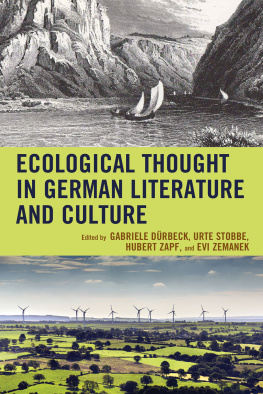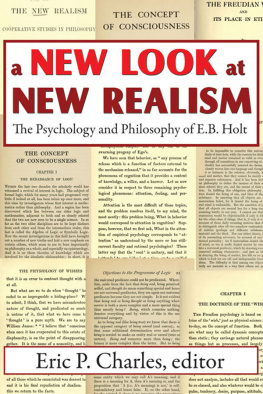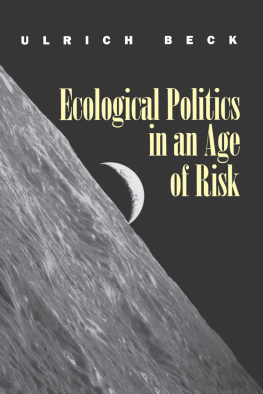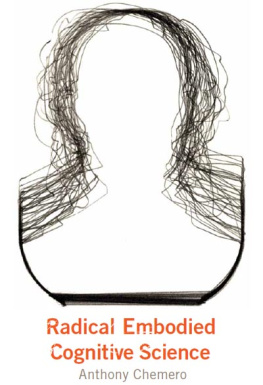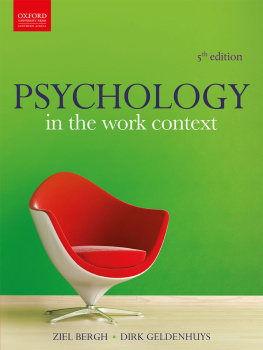Cover
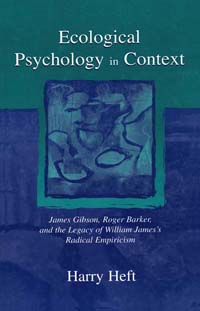
| title | : | Ecological Psychology in Context : James Gibson, Roger Barker, and the Legacy of William James's Radical Empiricism Resources for Ecological Psychology |
| author | : | Heft, Harry. |
| publisher | : | Lawrence Erlbaum Associates, Inc. |
| isbn10 | asin | : | 0805823506 |
| print isbn13 | : | 9780805823509 |
| ebook isbn13 | : | 9780585382630 |
| language | : | English |
| subject | Environmental psychology. |
| publication date | : | 2001 |
| lcc | : | BF353.H36 2001eb |
| ddc | : | 155.9 |
| subject | : | Environmental psychology. |
Page 1
I
Ecological Theory
and Philosophical Realism

Page 10
conditions at some distance from them. And yet with few exceptions, psychologists have been employing theoretical approaches to perceiving that are tacitly, if not explicitly, structured by pre-Darwinian (i.e., by Cartesian thinking; see chap. 1). The necessary attempts to accommodate evolutionary considerations into psychological theory have typically involved little more than grafting some sort of functional analysis onto this pre-Darwinian perspective. Such a move results in attention being directed either to the peripheral sensitivities of animals and their associated proximal stimuli, or to intra-organismic processes, or to both. In all of these cases, the sole focus of the analysis is on processes of the organism. But as Heider (1926/1959) and Tolman and Brunswik (1935/1966) pointed out, such a restricted focus is incomplete. Because organisms function adaptively in an environment filled with meaningful features located at various distances from them, the earlier question remains unanswered: How can the gap be bridged between environmental conditions and psychological processes?
If the gap is conceptualized as one separating physical stimulation and psychological experience, then it is, in fact, unbridgeable. This is because to state the problem as one of discovering the relation between physical properties and psychological experience is to attempt to link conceptual resources operating at incommensurate levels of analysis. Is this then an irresolvable issue, or is there some alternative way of framing the problem? Clearly, a variant of the dualistic, Cartesian metaphysical framework will not do.
In his later writings, William James labored to formulate an alternative way of conceptualizing the relation between the environment and the person. The result was his philosophy of radical empiricism, and through this alternative, James did not so much bridge the gap as attempt to eliminate it entirely. Radical empiricism provides the philosophical and historical foundations for ecological psychology
Page 100
governs in every respect what they shall be and in what succession they shall flow (p. 41).
Perceiving, thinking, and imagining are not happenings in some nonmaterial realm. Rather, these functions are just some of the things that the body of a complex biological organism does. To say I think refers to a complex bodily process in the same way that when I say that I digest my food well, what is being referred to is a different, if simpler, kind of biological process of the physical body. In neither instance is it the case that any spiritual inner being is implied (p. 49). Also, to extend the analogy, digesting is an action of the body on some other structures. Digesting is a functional relation, and in the absence of digestibles, it is an unrealized potential function. Likewise, cognitive functions are potential activities of an animal in relation to other structures. Holts final prescription for psychology is to study the sensorimotor activities of a living organism in a concrete situation (p. 50). The knower, he continued, is a concrete material body in a concrete material environment, and the cognitive relation exists between the two (p. 51).
Looking back over Holts writings, there is much continuity. His early psychological writings, excluding his initial experimental work on vision, were largely theoretical in style. As he recognized the static nature of his initial system presented in The Concept of Consciousness , he came to look at the organism in a more dynamic way, and this emphasis led to a molar functionalism built on a detailed empirical analysis of behavior and development. Lest this biological emphasis seem like a movement away from his initial philosophical and theoretical concerns, these final articles show a closing of the circle as he returns to the philosophical questions that he explored earlier in his career.
A FORGOTTEN PSYCHOLOGIST OF "THE OLD DAYS"
Although Holts intellectual interests persisted throughout his career, his productivity diminished in step with his waning enthusiasm for academia. Some insight into his later attitudes toward academia and toward institutions and social structures generally can be gleaned from his late and acerbic essay, The Whimsical Condition of Social Psychology, and of Mankind (1935). Holt taught social psychology for many years while at Princeton, and this essay provides the only glimpse available into his social psychological orientation, although for reasons to be mentioned, his views in this essay were likely more politically conservative than those he held at Princeton in the late 1920s. Finally, this essay offered a clearer sense of his personality toward careers end than any of his later publications.
Holt was blunt in his criticism of the field of social psychology. He accused social psychologists of a mental blindness toward the one
Page 101
underlying fact of all social behavior: namely, that man, no less than every other living creature, is always and inevitably self-interested, ego-centric (p. 173). Holt viewed this claim as an obvious extension of his concept of adience: Adience, in short, is the physiological term and egotism, selfishness, self-interest are the behavioristic terms for one and the same thing (p.186).
Because this is the primary social motivation of humans, Holt cautioned the reader to be wary of ideologies and the leaders who promote them. In truth, leaders are intent on pursuing self-interest, often to the detriment of the masses. He saw this problem as especially acute at the time this essay was written in the early 1930s. (We are well within the penumbra of a new Darkness.) He specifically expressed his concern about the mounting armaments in Western countries and directed much pointed criticism toward communist Russia. He urged us to recognize our essentially self-interested motives and then work toward the development of a society in which we can pursue a wiser, more far-sighted self-interest (p. 202). This latter prescription is one of the few bright moments in an otherwise gloomy assessment of the human condition.
Although it is true that this analysis could be seen as one possible extension of adience, it is not logically necessary that it be the only one. Social actions motivated by self-interest are not the only possible social transformation of the adient response tendency of perceivers to go out to meet the stimulus [and] get more of it (Holt, 1931, p. 41). Indeed, it would appear to be an excessively narrow consideration of the range of interests that his mentor, William James, claimed directed selectivity in cognition and action, and a movement away from Jamess pluralistic outlook.
Next page


